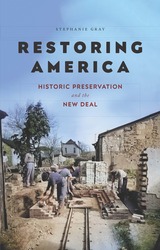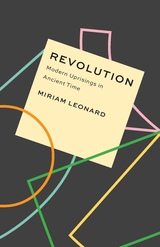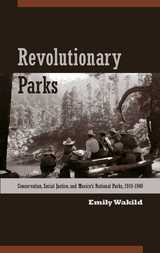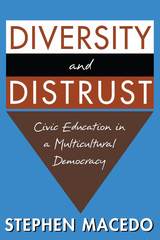
What should the aims of education policy be in the United States and other culturally diverse democracies? Should the foremost aim be to allow the flourishing of social and religious diversity? Or is it more important to foster shared political values and civic virtues?
Stephen Macedo believes that diversity should usually, but not always, be highly valued. We must remember, he insists, that many forms of social and religious diversity are at odds with basic commitments to liberty, equality, and civic flourishing. Liberalism has an important but neglected civic dimension, he argues, and liberal democrats must take care to promote not only well-ordered institutions but also well-ordered citizens. Macedo shows that this responsibility is incompatible with a neutral or hands-off stance toward diversity in general or toward the education of children in particular. Extending the ideas of John Rawls, he defends a "civic liberalism" that supports the legitimacy of reasonable efforts to inculcate shared political virtues while leaving many larger questions of meaning and value to private communities.
Macedo's tough-minded liberal agenda for civic education offers a fundamental challenge to free market libertarians, the religious right, parental rights activists, postmodernists, and many of those who call themselves multiculturalists. This book will become an important resource in the debate about the reform of public education, and in the culture war over the future of liberalism.

Japan, as recent history has powerfully illustrated, is one of the world’s most earthquake-prone countries. Today it is also one of the best prepared to face such seismic risk. This was not always the case.
Earthquake Children is the first book to examine the origins of modern Japan’s infrastructure of resilience. Drawing from a rich collection of previously unexplored sources, Janet Borland vividly illustrates that Japan’s contemporary culture of disaster preparedness and its people’s ability to respond calmly in a time of emergency are the result of learned and practiced behaviors. She traces their roots to the 1923 Great Kantō Earthquake, which killed over 100,000 people when it struck the Tokyo region.
Beyond providing new perspectives on Japan’s seismic past, the history of childhood, and everyday life in interwar Japan, Borland challenges the popular idea that Japanese people owe their resilience to some innate sense of calm under pressure. Tokyo’s traumatic experiences in 1923 convinced government officials, seismologists, teachers, physicians, and architects that Japan must better prepare for future disasters. Earthquake Children documents how children, schools, and education became the primary tools through which experts sought to build a disaster-prepared society and nation that would withstand nature’s furies.

Poorman brings together ethics and pastoral practice in an interactional model that captures the distinctive character of Christian pastoral counseling. His work is especially important in a culture that often confuses pastoral counseling with therapy. It also challenges traditional notions which portray the pastoral minister as an instructor who dispenses the church's moral teaching. Poorman distinguishes the pastoral task from that of therapist or teacher, while drawing on the best resources of contemporary psychology and moral development theories. he brings moral theology into lively conversation with pastoral experience; at the same time, his clear presentation brings a critical method of moral discernment to Christian ministry which is rooted in faith and the wisdom of the community.

Reprimand a class comic, restrain a bully, dismiss a student for brazen attire--and you may be facing a lawsuit, costly regardless of the result. This reality for today's teachers and administrators has made the issue of school discipline more difficult than ever before--and public education thus more precarious. This is the troubling message delivered in Judging School Discipline, a powerfully reasoned account of how decades of mostly well-intended litigation have eroded the moral authority of teachers and principals and degraded the quality of American education.
Judging School Discipline casts a backward glance at the roots of this dilemma to show how a laudable concern for civil liberties forty years ago has resulted in oppressive abnegation of adult responsibility now. In a rigorous analysis enriched by vivid descriptions of individual cases, the book explores 1,200 cases in which a school's right to control students was contested.
Richard Arum and his colleagues also examine several decades of data on schools to show striking and widespread relationships among court leanings, disciplinary practices, and student outcomes; they argue that the threat of lawsuits restrains teachers and administrators from taking control of disorderly and even dangerous situations in ways the public would support.
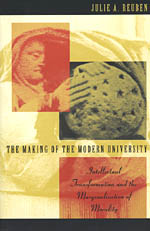
Based on extensive research at eight universities—Harvard, Yale, Columbia, Johns Hopkins, Chicago, Stanford, Michigan, and California at Berkeley—Reuben examines the aims of university reformers in the context of nineteenth-century ideas about truth. She argues that these educators tried to apply new scientific standards to moral education, but that their modernization efforts ultimately failed. By exploring the complex interaction between institutional and intellectual change, Reuben enhances our understanding of the modern university, the secularization of intellectual life, and the association of scientific objectivity with value-neutrality.


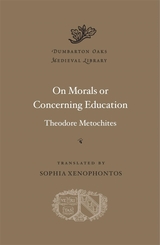
On Morals or Concerning Education is an exhortation on the importance of education by the prolific late-Byzantine author and statesman Theodore Metochites (1270–1332), who rose to the aristocracy from a middle-class background but fell from favor late in life and died as a monk. As a manual of proper living and ethical guidance, the treatise offers unique insights into the heightened roles of philosophy and rhetoric at a time when the elite engaged intensely with their Hellenic heritage, part of a larger imperial attempt to restore Byzantium to its former glories.
On Morals probes hotly disputed issues in fourteenth-century Byzantine society, such as the distinction between the active and contemplative life and the social position of scholars. Metochites’s focus on the character and function of Christian faith also reflects ongoing debates regarding the philosophy of religion. Occasional autobiographical digressions offer fascinating glimpses of Metochites’s distinctive personality.
This volume provides the full Byzantine Greek text alongside the first English translation of one of Metochites’s longest works.
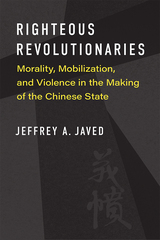
Righteous Revolutionaries illustrates how states appeal to popular morality—shared understandings of right and wrong—to forge new group identities and mobilize violence against perceived threats to their authority. Jeffrey A. Javed examines the Chinese Communist Party’s mass mobilization of violence during its land reform campaign in the early 1950s, one of the most violent and successful state-building efforts in history. Using an array of novel archival, documentary, and quantitative historical data, this book illustrates that China’s land reform campaign was not just about economic redistribution but rather part of a larger, brutally violent state-building effort to delegitimize the new party-state’s internal rivals and establish its moral authority.
Righteous Revolutionaries argues that the Chinese Party-state simultaneously removed perceived threats to its authority at the grassroots and bolstered its legitimacy through a process called moral mobilization. This mobilization process created a moral boundary that designated a virtuous ingroup of “the masses” and a demonized outgroup of “class enemies,” mobilized the masses to participate in violence against this broadly defined outgroup, and strengthened this symbolic boundary by making the masses complicit in state violence. Righteous Revolutionaries shows how we can find traces of moral mobilization in China today under Xi Jinping’s rule. In an era where states and politicians regularly weaponize moral emotions to foment intergroup conflict and violence, understanding the dynamics of violent mobilization and state authority are more relevant than ever before.
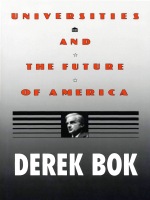
“If universities are so important to society and if ours are so superior, one might have thought that America would be flourishing in comparison to other industrialized countries of the world. Yet this is plainly not the case. . . . Our economic position in the world has deteriorated [and] we have climbed to the top, or near the top, of all advanced countries in the percentage of population who live in poverty, commit crimes, become addicted to drugs, have illegitimate children, or are classified as functionally illiterate.” In light of these results, “it is fair to ask whether our universities are doing all they can and should to help America surmount the obstacles that sap our economic strength and blight the lives of millions of our people.”
Having posed this question, Derek Bok reviews what science can do to bring about greater productivity, what professional schools can do to improve the effectiveness of corporations, government, and public education, and what all parts of the university are doing to help students acquire higher levels of ethical and social responsibility. He concludes that Universities are contributing much less than the should to help the nation address its most urgent social problems. “A century after the death of Cardinal Newman, many university officials and faculty members continue to feel ambivalent about deliberate efforts to address practical problems of society. And though competition drives university leaders and their faculties to unremitting effort, what competition rewards is chiefly success in fields that command academic prestige rather than success in responding to important social needs.”
Bok urges academic leaders, trustees, foundations, and government agencies to work together to help universities realign their priorities “so that they will be ready to make their full contribution when the nation turns its attention again to the broad agenda of reform. . . . Observing our difficulties competing abroad, our millions of people in poverty, our drug-ridden communities, our disintegrating families, our ineffective schools, those who help to shape our universities have reason to ask whether they too have any time to lose.”
READERS
Browse our collection.
PUBLISHERS
See BiblioVault's publisher services.
STUDENT SERVICES
Files for college accessibility offices.
UChicago Accessibility Resources
home | accessibility | search | about | contact us
BiblioVault ® 2001 - 2025
The University of Chicago Press



